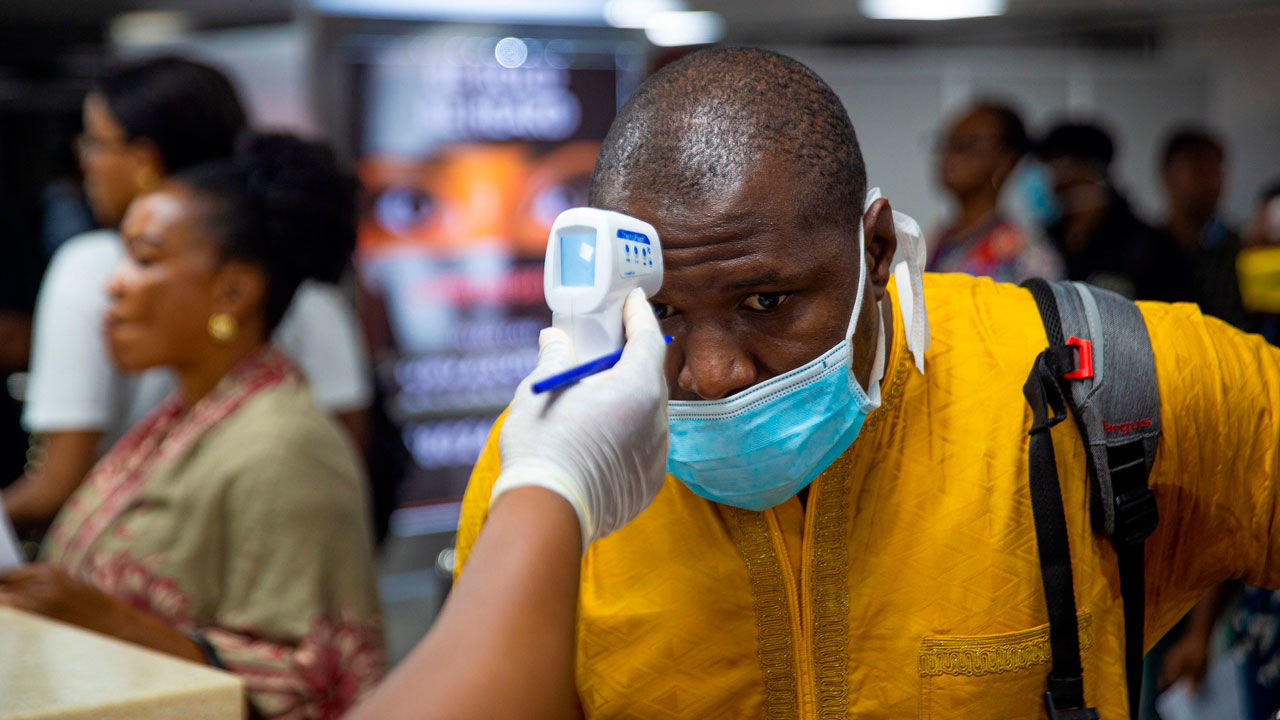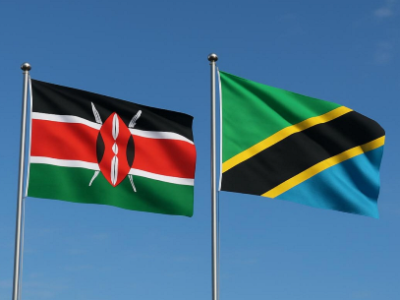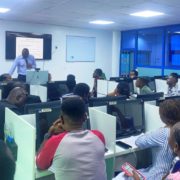By Nwakaego Alajemba
Despite Nigeria’s economic downturn occasioned by a mix of factors including the COVID-19 pandemic and crash in crude oil prices, individuals and startups could still leverage emerging digital opportunities to prosper.
According to one Nigerian technology expert and social analyst, Dr Nentawe Goshwe Yilwatda, a shift in social behavior resulting from the current global pandemic with the rise in business activities around the digital economy has opened new employment and entrepreneurship opportunities for millions of young people,
While speaking at a recent webinar on ‘Things you can do to Succeed in Post Covid-19 Nigeria,’ Yilwatda revealed that the economy has expanded beyond its global value of USD11.5 trillion in 2016, or a 15.5% equivalent of the world’s overall GDP.
In 2020, with the pandemic and enforcement of social distancing and lockdown across many cities worldwide, online shopping has increased recording a massive jump in home delivery. The result has been an unprecedented boost in e-commerce creating millions of jobs across the world including Nigeria. The pandemic opened a new profitable chapter in online retailing, delivery and logistics to homes, said Yilwatda. Youths need to explore this market, acquire new skills in setting up and managing online stores for provisioning general and unique products within the Nigerian economy.
Surge in apps and new skills for ‘new normal’
Similarly, the demand for applications to support remote working, remote learning and conferencing among others has surged. There has been a great increase at the level of mass dependency on platforms for exchange of information, goods, and services. Market has expanded greatly for applications and for apps developers, it is a wave of opportunities in the ‘new normal.’
Also noteworthy is the growing acceptance of online learning and education. “More schools are investing for kids to learn online. it is cheaper, more effective and will in continue post COVID-19 era, Yilwatda reasoned,
What that means is that “the need for technologically-skilled workers:
business automation, remote working and outsourcing will come with need for better skilled workforce,” added the technology expert.
The demand for data will grow exponentially. Data science will prove to be a career paying path for many and getting skilled in this sphere should be a priority for many young people, said Yilwatda, who is also the Resident Electoral Commissioner (REC) for the Independent National Electoral Commission (INEC) in Benue state.
As at today, there are about over 11.6 million COVID-19 cases in more than 227 countries and more than 537,000 deaths. The confirmed cases in Nigeria now exceed 229,286 with 654 deaths.
Opportunists and anxieties
According to the International Monetary Fund (IMF), projected real GDP for Nigeria is in the negative at -5.4 %. Unemployment rate is expected to hit 33.6% meaning about 39.4 million jobs will be lost by the end of 2020. Within the same period, consumer prices will increase by 13.4%, said the IMF while low foreign exchange from oil may trigger liquidity challenges and naira will further depreciate.
More worrisome is that Nigeria’s population will exceed the current 206 million with median age 18.1 years according to the Worldometer. In Nigeria, about 14,000 babies are produced per day and population is growing the rate of 3.1%, noted Yilwatda.
“There is therefore an urgent need for intervention to save jobs, the naira, the economy and reduce hunger with poverty,” he told the virtual audience. According to him, government’s fiscal response has included the provision of N3.5 trillion intervention stimulus by the Central Bank of Nigeria (CBN) and Bankers Committee; further injection of N50 billion by the CBN into the economy via Targeted Credit Facility (TCF) to support households and MSMEs affected by the pandemic.
Other intervention include provision of N396.5 billion to MSMEs to support production and N432 Billion under ABP to fund 1.1 million farmers in the value of nine commodities: rice, cassava, maize, palm oil, cowpea, livestock, poultry and fish. There is also N100 billion credit facility for the healthcare sector through PFIs.
But there’s a limit to which the government and international entities can support any economy. Individuals and, businesses whether small or big, must rework their response to the economy – get reskilled and retooled in order to be able to leverage new opportunities as they emerge.




























